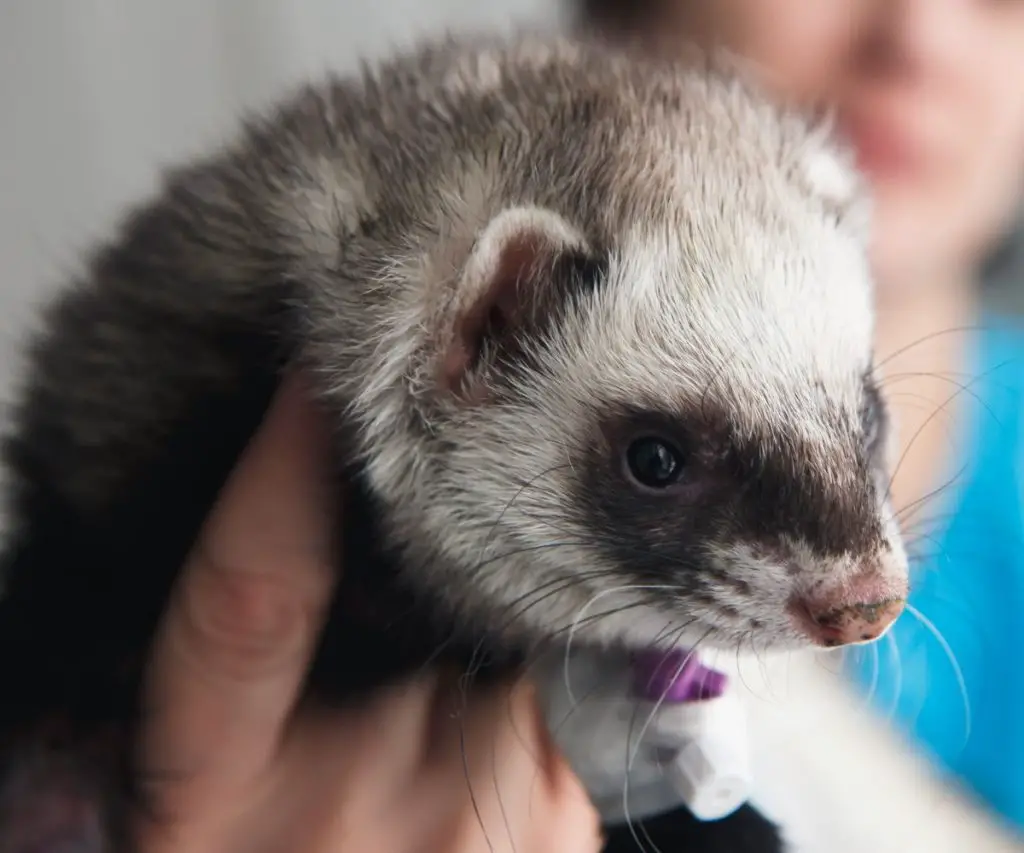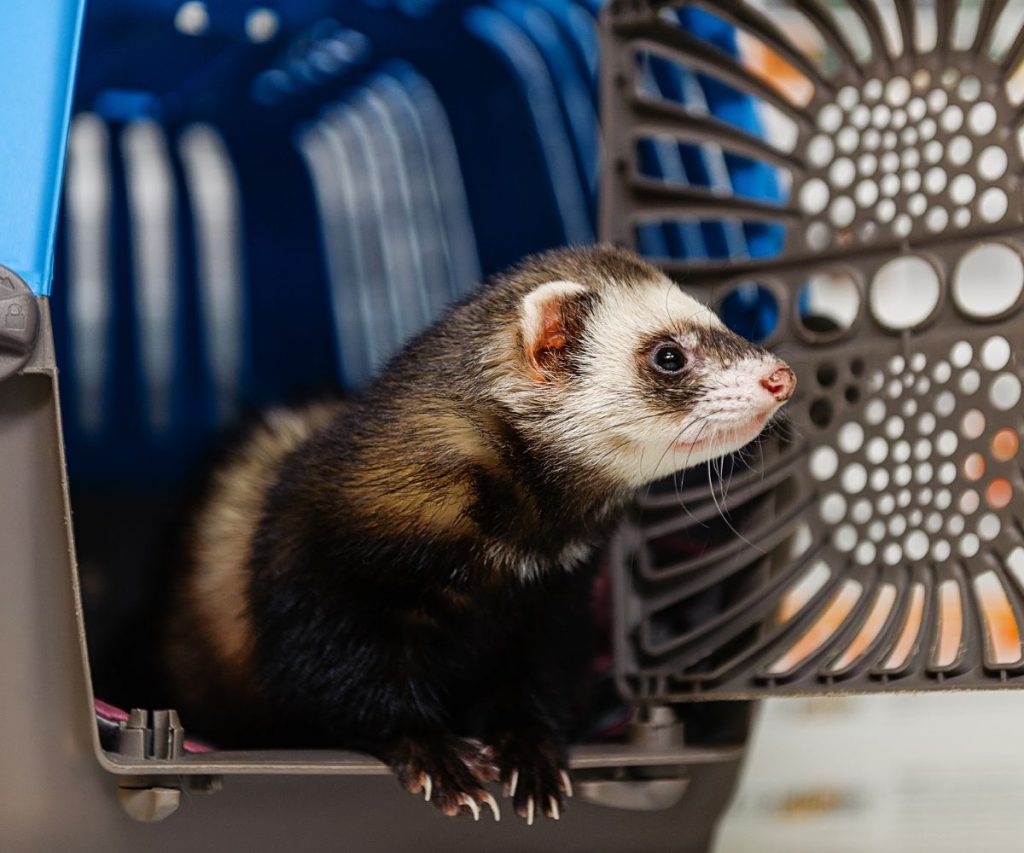If you feed your ferret raw meat or take them outside, you might be wondering, “can you use cat dewormer on ferrets?”
Ferrets can carry many parasites, some of which also infect cats. However, using a cat dewormer on ferrets may not be effective and may harm your pet.
Can You Use Cat Dewormer on Ferrets?
You shouldn’t use cat dewormers on ferrets unless it’s under veterinary supervision since you could accidentally give them too much. Several ferret-friendly dewormers are available on the market, and your veterinarian can help you choose the best one.

What Dewormer is Safe for Ferrets?
Revolution Topspot is an excellent dewormer for ferrets. You can give your ferret this dewormer monthly.
Your veterinarian can provide you with Revolution Topspot, and they’ll recommend the correct dose to give your ferret based on their weight.
Although ferrets can get the same types of worms as cats, using a cat dewormer runs the risk of giving them too much or too little medication.
In addition to deworming, which will take care of internal parasites, you should also protect your ferret from external parasites. Advantage II makes a special flea medication for ferrets. The fragrance-free formula is safe to use on ferrets over one pound, and it kills fleas in all three of their life stages.

How Do You Deworm a Ferret?
You have two options for deworming your ferret—giving them an oral medication or an injection.
If you’d like to deworm your ferret for preventative reasons, your veterinarian will most likely recommend an oral treatment. You can administer oral medication from your home, and the medicine will likely come in a tube.
You can follow these steps to deworm your ferret:
- Set the dewormer tube to the milliliter amount that your veterinarian recommends.
- Firmly cradle your ferret in your arms and gently open their mouth with the tube.
- Push the tube towards the back of their throat.
- Quickly release the medication by pushing it down.
If your ferret isn’t squirming too much, try to keep their face pointing towards the ceiling. That way, you encourage them to swallow instead of spitting it out.
Once you administer the medication, make sure to reward your ferret with their favorite treat so they’re not too traumatized for future doses.
Alternatively, your veterinarian may recommend giving your ferret an injectable dewormer. Since this can be a quicker way to attack parasites, they may choose to do this if your ferret tests positive.
That said, studies show that injectable dewormers often stay in an animal’s body for a longer time and at a lower concentration than oral dewormers. As a result, the parasites in your ferret’s body may build up an immunity to the dewormer if you frequently give them the injectable variety.

Can Cats Pass Worms to Ferrets?
Cats can pass worms to ferrets, especially intestinal protozoan-type parasites. For this reason, if your ferret and cats interact with each other often, you should keep your ferret dewormed.
When considering the question, “Can you use cat dewormer on ferrets?” it’s essential to understand the source of parasites in ferrets. More often than not, parasites come from meat you give your ferret, such as mice. They also come from pets in your home, including cats.
Roundworm is one of the most common parasites that cats—especially kittens—can pass on to ferrets.
Your ferrets and kittens may also suffer from cryptosporidium, which is a parasite-inducing disease that causes diarrhea. Your ferrets and kittens can die from cryptosporidium if you don’t catch it in time.
Coccidiosis is an intestinal tract infection that ferrets and cats can also get from the same protozoa parasite. The parasite will invade and destroy your ferret’s mucosa in their intestines. Weight loss, diarrhea, and fever are the most common symptoms of coccidiosis.
Keeping both your cats and ferrets dewormed is crucial to prevent internal parasites from spreading between them.
How to Tell if Your Ferret Has Worms
Ferrets don’t usually show signs of a parasite infection until the parasites have taken a stronghold of their body. For this reason, using dewormers for prevention is crucial.
Signs that your ferret has worms include:
- Diarrhea (may contain blood)
- Weight loss
- Dull coat
- Dehydration
- Difficulty defecating
You might also notice worms or eggs in your ferret’s feces. But this isn’t always evident to the naked eye. For this reason, you should take your ferret to the veterinarian so they can perform a stool sample if you suspect that your ferret has parasites.
In most cases, veterinarians can treat ferrets for parasites using standard dewormers. However, if your ferret has an advanced parasite infection, your vet may need to hospitalize them.
Bringing your ferret to the vet once a year for an annual check-up is an excellent way to prevent parasite infections.
Using Cat Dewormer on Your Ferret
Making deworming a routine part of your ferret’s care is an excellent practice. But instead of using a cat dewormer, you should purchase a dewormer from your veterinarian made for ferrets.
Your veterinarian will advise you on how frequently you should give your ferret dewormer based on their environment.


